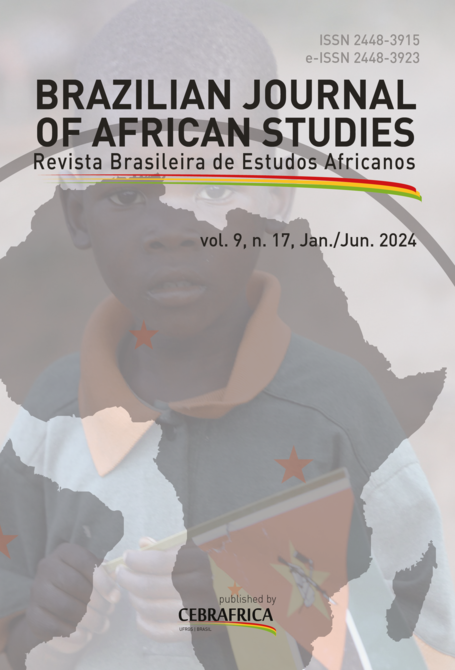STATE-BUILDING IN POST-1991 ETHIOPIA: EPRDF’S PSEUDO FEDERALISM AND REINCARNATING AUTHORITARIAN CENTRALISATION, AN OVERVIEW AND CRITIQUE
DOI:
https://doi.org/10.22456/2448-3923.139519Keywords:
Authoritarian re-centralisation. Consociational democracy. Democratic centralism. Developmental State. Ethiopia. Revolutionary democracy.Abstract
This article deals with post-1991 Ethiopia’s state-building crafted by the Ethiopian People’s Revolutionary Democratic Front (EPRDF), a guerrilla movement turned state-builder. EPRDF captured state power in 1991, introduced federalism, and restructured the state along ethnic lines to answer the nationalities’ questions. Ethiopia designed federalism to share constitutional power with regional states, albeit theoretically. A critical review of Ethiopia’s federal exercise showed that EPRDF did not share power with component units per federalism’s praxis. Rather, it reincarnated authoritarian power centralisation under the guise of federalism. A regime that claimed to be a champion of addressing oppressed nations’ quest for recognition, self-rule, and autonomy ended up being authoritarian and characterized as one of the most highly centralized governments the country has ever seen. A qualitative exploratory approach was employed to examine what factors contributed to the creeping of authoritarianism and power re-centralisation in a de jure federalized Ethiopia’s second republic. The findings indicated that EPRDF implemented a combination of ideologically-oriented cum pragmatic policies to build Ethiopia. Accordingly, revolutionary democracy, dominant party, ethnic federalism, developmental state model, politicized bureaucracy, 1-5 household arrangement, Ethiopia’s political culture, the opposition’s withdrawal, the fight against terrorism, and EPRDF’s determination to repeat wartime strategies and disciplines to state-building contributed to authoritarian reincarnation and power re-centralisation.
Downloads
Downloads
Published
How to Cite
Issue
Section
License
The author will hold copyright over the published articles and retain publishing rights.

Brazilian Journal of African Studies is licensed under a Creative Commons Atribuição 4.0 Internacional.


